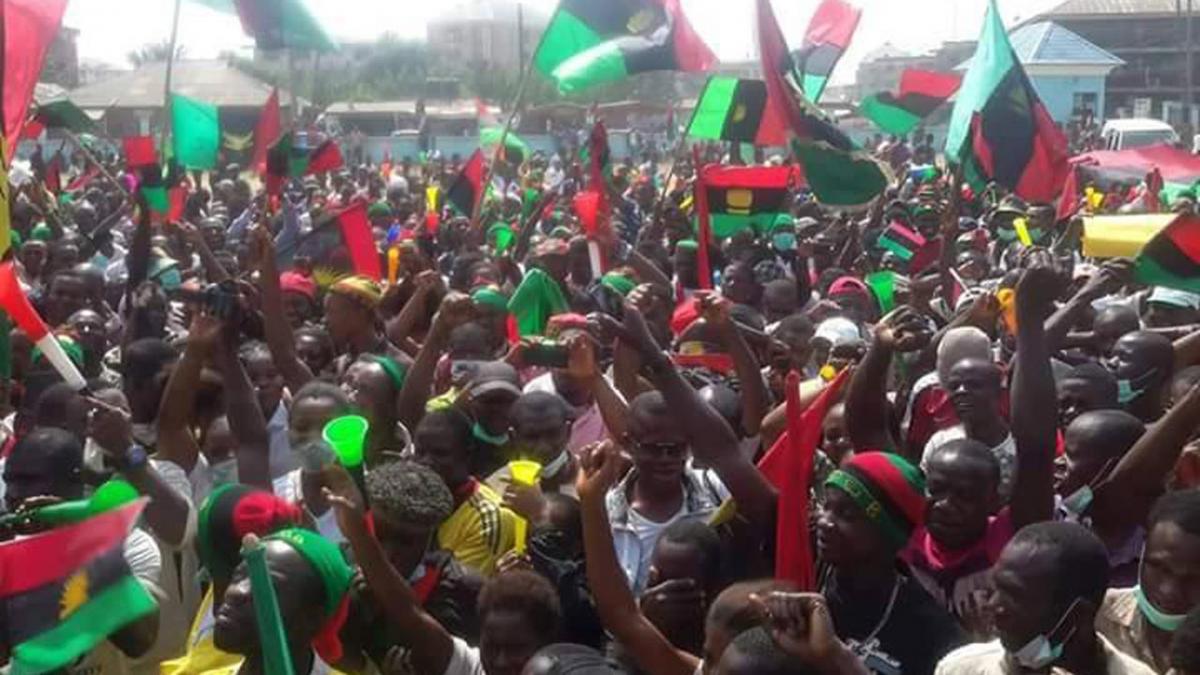There are no products in your shopping cart.
| 0 Items | £0.00 |


BRITAIN has defended its recent decision to offer political asylum to members of secessionist groups like the Indigenous People of Biafra (Ipob) and the Movement for the Actualisation of the Sovereign State of Biafra (Massob) saying it is an international obligation.
Earlier this week, the UK adjusted its asylum rules on Nigeria recognising that members of Ipob, Masson and other secessionist groups are facing persecution from the federal government and is now offering them political asylum visas. Nigeria has designated Ipob a terrorist organisation and this characterisation had been accepted in certain international circles, meaning that members of such groups could not seek political asylum abroad.
However, given the growing insecurity in Nigeria and a review of the situation, UK Visas and Immigration (UKVI) has just released new guidelines saying asylum is to be granted to persecuted members of Ipob and Massob. Nigeria's federal government has expressed dissatisfaction with this development but the UK has dismissed these objections saying it has an international obligation to protect those fleeing from prosecution.
According to the British high commission in Abuja, all asylum and human rights claims from Nigerian nationals are considered on their individual merits in accordance with its international obligations. Britain also insists that it has a proud history of providing protection to those who need it, in accordance with its international obligations under the Refugee Convention and European Convention on Human Rights.
Ipob leader Kanu, who holds both Nigerian and British passports, fled Nigeria in 2018 after troops invaded his country home while he was facing trial on treasonable felony charges for criminal conspiracy, intimidation and membership of an illegal organisation. In the new guidelines titled Country Policy and Information Note Nigeria: Biafran secessionist groups, UKVI, a division of the British Home Office, directed its decision makers to consider if a person who actively and openly supports Ipob is likely to be at risk of arrest and detention and ill-treatment which is likely to amount to persecution.
“Those fleeing prosecution or punishment for a criminal offence are not normally refugees. Prosecution may, however, amount to persecution if it involves victimisation in its application by the authorities,’’ the 56-page UKVI document noted.
However, Nigeria's federal government frowned on the new guidelines, describing them as support for terrorism. Information minister Alhaji Lai Mohammed, who said that the decision was disrespectful, noted that it amounted to sabotaging the fight against terrorism and generally undermining Nigeria’s security.
Responding to the allegations by the federal government, the British High Commission said the UK had a proud history of providing protection to those who needed it. Meanwhile, prominent Igbo groups under the auspices of World Igbo Youth Congress and South-East Women Professionals, have supported the UK’s offer of asylum for persecuted Ipob and Massob members.